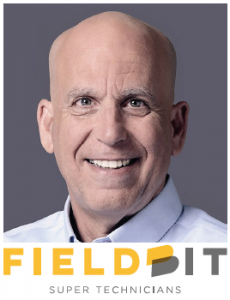The Big Discussion: Augmented Reality (part 3)
Jun 05, 2017 • Features • Augmented Reality • Future of FIeld Service • Niklas Rengfors • XM reality • Big Debate • David Nedohin • Evyatar Meiron • FieldBit • ScopeAR
As we move into week three of our new series we've now addressed a couple of big questions around the core topic of Augmented Reality.
The series is called The Big Discussion and the idea is that we take one topic, bring together three leading experts on that topic and put four key questions to them across four weeks, to help us better understand its potential impact on the field service sector...
On this first topic of Augmented Reality and our experts are Evyatar Meiron, CEO, Fieldbit, Niklas Rengfors, Head of Sales & Marketing, XM Reality and David Nedohin, President, ScopeAR...
So far we've asked our panel "Just how big an impact can and will Augmented Reality have on field service delivery?" and "What advantages does Augmented Reality offer over video calls such as FaceTime and Skype etc?"
and now onto this weeks question in the Big Discussion...
Question Three: Do you see Augmented Reality ultimately becoming a standard tool included within wider FSM solutions or should it be viewed as a specialist standalone application?
 David Nedohin, President, ScopeAR
David Nedohin, President, ScopeARAugmented reality is a communication technology that will be integrated into FSM tools and made available to the workforce to access when and where they need it.
This may be required to meet government regulations, to engage with an expert, or improve competency or safety.
However, AR will be a tool in the toolkit that will be used when needed, and part of a larger set of technologies.
If a picture, voice call or video is appropriate, perhaps AR will not be needed, but as workers become more familiar with the value of AR once integrated into their FSM apps, it will be a tremendous resource, when it is needed.
 Evyatar Meiron, CEO, Fieldbit
Evyatar Meiron, CEO, FieldbitAs mentioned earlier, augmented reality is a disruptive technology that is radically changing the way organisations perform field service maintenance. It is an innovative platform that uses new technologies.
For this reason, augmented reality is more likely in the short term to remain a standalone tool that complements FSM solutions. That said, some of the more basic telesupport-oriented augmented reality features - those that enable real-time remote communications between the onsite technician and the expert at company headquarters - could be integrated at some point with the FSM software.
In contrast, the knowledge management component, including the information capture, storage, sharing and search capabilities, is more complex in nature and requires specific expertise. I believe that this component will continue to develop as a separate specialist system.
 Niklas Rengfors, Head of Sales & Marketing, XM Reality
Niklas Rengfors, Head of Sales & Marketing, XM RealityDefinitely included within wider FSM solutions, we are currently working with different partners already, IFS to mention one is strong partner in field service.
By connecting information flows between systems for example between mobile work orders and XMReality, it adds a lot of value to the customer.
Can be things like storing for documentation purposes, saved videos later then used for training purposes etc. As solutions to display or create content gets more efficient AR will most likely become a standard tool.
Next weeks the final question: How closely tied to the development of smart glasses is augmented reality – are the two co-dependent or are tools on smartphones/tablets sufficient?





















 Field Service News is published by 1927 Media Ltd, an independent publisher whose sole focus is on the field service sector. As such our entire resources are focused on helping drive the field service sector forwards and aiming to best serve our industry through honest, incisive and innovative media coverage of the global field service sector.
Field Service News is published by 1927 Media Ltd, an independent publisher whose sole focus is on the field service sector. As such our entire resources are focused on helping drive the field service sector forwards and aiming to best serve our industry through honest, incisive and innovative media coverage of the global field service sector.
Leave a Reply